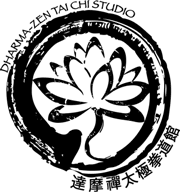In the year 527 A.D during the time of the Liang Dynasty, the 28th Indian Zen Patriarch, Bodhidharma, sailed to China on a ship. Bodhidharma is historically the founder of Zen in China and is also regarded as the first Chinese Zen Patriarch. On the 21st of September, he landed in Guangzhou. The Emperor during that time was Liang Wudi. He was very fond of Buddhism and often wore Buddhist garments, ate vegetarian food and recited Buddhist chants. On the 1st of October, at the invitation of Emperor Liang, Bodhidharma went to his capital in Nanjing.
When Liang Wudi saw Bodhidharma, he asked him “Since I came to the throne, I have built many temples, copied numerous sutras and supported countless monks and nuns. How great is the merit in all these?” Bodhidharma look at him for a moment then told Liang Wudi, “No merit to speak of.” And he kept saying, “What you have done are but mundane activities and cannot be considered true merit. True merit consists in pure awareness, wonderful and perfect. Its essence is emptiness. One cannot gain such merit by worldly means.”
After talked with Liang Wudi, Bodhidharma realized that Emperor Liang could not grasp his meaning. He left, sailing across the Yangtze River on a reed and went northwards. He eventually went to the Shaolin Monastery on Mount Song. It was near here that Bodhidharma spent nine years sitting in meditation, facing a cave wall (many people know this famous Zen story.)
Here is an article with more interesting things to say. It’s called “The Path To Happiness: It Is Better To Give Than Receive” from The guardian Friday March 21 2008 (http://www.guardian.co.uk/science/2008/mar/21/medicalresearch.usa) “Money may not buy you love but it might buy you happiness if you spend it in the right way, US researchers say. In studies they found that the old adage “it’s better to give than to receive” is correct: spending money on others or giving to charity puts a bigger smile on your face than buying things for yourself.
“Most people would think that if you make more money you are going to be a lot happier,” said Michael Norton, a professor at Harvard Business School. “Our results, and a lot of other people’s results, show that making more money makes you a little bit happier, but doesn’t really have a huge impact on you. Our studies suggest maybe that little changes in how you spend it make a difference.”
This thought is continued in another article called “An Elusive Billionaire Gives Away His Good Fortune.” It is written by Margot Roosevelt, Los Angeles Times Staff Writer March 8, 2008 (at http://www.latimes.com/news/local/la-me-feeney8mar08,0,5386641.story).
“Chuck Feeney, who nudges others to give while living, plans to donate $8 billion by 2016. Just don’t put his name on anything.
Over the years, the frugal 76-year-old has made a fetish out of anonymity. He declined to name his foundation, Atlantic Philanthropies, after himself, registering the $8-billion behemoth in Bermuda to avoid U.S. disclosure laws. He lavishes hundreds of millions of dollars on universities and hospitals but won’t allow even a small plaque identifying. As Feeney sees it, there is too much misery in the world to justify delay. “I’m not going to die until I can spend it,” he vows with a merry chuckle.
In the tiny world of stratospheric wealth, Feeney is a man of yin and yang: extravagant charity coupled with personal penny-pinching. “It’s the intelligent thing to be frugal,” says the erstwhile billionaire, who jokingly refers to himself as “the shabby philanthropist.” He once owned six luxurious homes from the French Riviera to Mayfair to Park Avenue. These days, he owns none, instead hunkering down in a cramped one-bedroom rental in San Francisco with his second wife, Helga, his former secretary. He raked in billions selling duty-free cognac, perfume and designer labels. But you won’t catch Feeney in a Hermes tie or Gucci loafers. He once met the prime minister of Ireland with his drugstore glasses held together by a paper clip.
Feeney doesn’t own a car and prefers buses to taxis. Until he turned 75, he flew coach. Now, making excuses for wobbly knees, he upgrades with frequent flier miles. Feeney mentions one of his favorite charities, Operation Smile, which sponsors surgeons to operate on children with cleft palates in developing countries.
He tells of watching a little girl in a waiting room sitting with her hands covering her mouth. “I kept an eye on her,” he recalls. “After she had the operation and she was smiling [like], ‘It’s not the ugly me you knew before. It’s the new me.’ ”
Feeney suggests with a cryptic smile, “There’s a thin line between sanity and the other side. Some people might even say the idea of giving money away is crazy.” For those folks, Feeney has a Gaelic proverb: “There are no pockets in a shroud.””
Even when acting charitably many people are just like Liang Wudi, calculating “How great is the merit in all this?” Their contributions are actually more like a business transaction where generosity is exchanged for praise and fame. This is not true merit. From reading Buddhist writings and the above articles I now realize fully what is. True merit doesn’t arise from receiving exterior praise or calculations of repayment; it only gained from one’s own heart and wisdom. Just like Bodhidharma said, “True merit consists in pure awareness, wonderful and perfect. Its essence is emptiness. One cannot gain such merit by worldly means.”
–Danny
